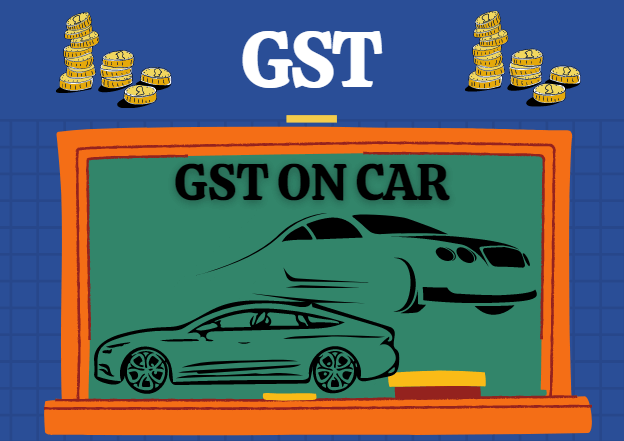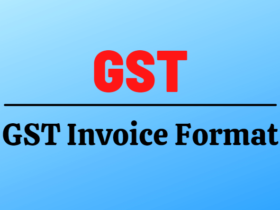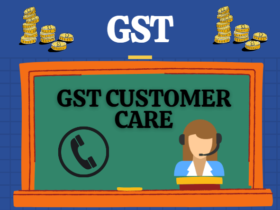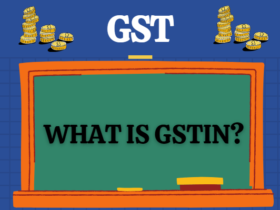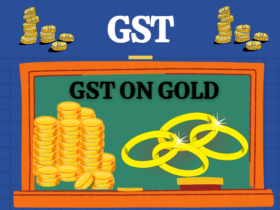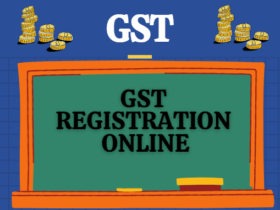GST Impact on Cars? The automobile industry is the most flourishing sector of the country. India enjoys 49% as industrial GDP and net manufacturing GDP of 27%.
It also provides employment to over 37 million persons. As a result, the automobile industry accounts for at least 15% of the country’s total GST collection.
In addition, some sectors have benefited more than others from the implementation of the new tax regime or GST on the car system.
Therefore, around 15% of the country’s net GST is allocated to the automobile industry. In addition, the implementation of GST on cars has proved beneficial for quite a few sectors. The current GST rates for cars are 28%, 18%, 12% and 5%. The impact of GST on cars has brought huge benefits to consumers, dealers, and manufacturers.
Generally, the GST on a car depends on several factors. Some major factors include:
- Classification
- Fuel type
- Usage
GST on Car based on category
| Category of car | Model | Pre-GST Tax Rate | GST Rate on Car |
|---|---|---|---|
| Small cars with an engine capacity less than 1200cc | Volkswagen Polo, Hyundai Grand i10, Maruti Suzuki Swift, and Tata Tiago | 28% | 18% |
| Medium size cars with an engine capacity over 1200cc and less than 1500cc | Honda Amaze, Nissan Kicks, Maruti Baleno, and Tata Nexon | 39% | 18% |
| Luxury car with an engine capacity above 1500cc | Lamborghini Aventador, Bugatti Chiron, Toyota Land Cruiser, Land Rover, etc. | 42% | 28% |
| SUVs with an engine capacity above 1500cc | Renault Duster, Mahindra TUV, Jeep Compass, Maruti Vitara Brezza, etc. | 45% | 28% |
| Electric vehicles | Mahindra eVerito and Mahindra e20. Electric vehicles owners receive a direct deduction of 7.5% | 20.5% | 12% |
GST on Car based on Fuel type
| Fuel and engine type of car | Fuel tank capacity | Model | Pre-GST Tax Rate | GST rate on car |
|---|---|---|---|---|
| Sub 4-meter cars with an engine forpetrol | Less than 1.2l | Maruti Suzuki Dzire, Toyota Etios Liva, Hyundai Grand i10, Volkswagen Polo, etc. | 31.5% | 29% |
| Sub 4-meter cars with an engine for diesel | Over 1.5l | Mahindra TUV 300, Hyundai i20, Maruti Suzuki Vitara Brezza, Ford Ecosport, etc. | 33.25% | 31% |
| Sub 4-meter cars with an engine for bothpetrol and diesel | For petrol – more than 1.2l For diesel – less than 1.5l | Subcompact SUVs and sedans | 44.7% | 43% |
| Larger than 4-metres SUVs for petrol and diesel engine | Any capacity | Tata Hexa, Mahindra Scorpio, Ford Endeavour, Mercedes-Benz GLC, etc. | 55% | 43% |
| Larger than 4-metres non-SUVs for petrol and diesel engine type | For petrol – over 1.2lFor diesel – over 1.5l | Hatchbacks and sedans | 51.6% | 43% |
| Electric cars | Nil | Mahindra e20, Mahindra eVerito, etc. | 20.5% | 12% |
GST on Cars for Personal Use
Vehicles such as motor vehicles, cars, and cycles used for personal needs are also subject to GST. This GST on vehicles ranges from 5% to 12%. In addition, GST is applicable on both the vehicle and its replacement parts and accessories.
- 5% GST on Vehicles: The GST on vehicles and cars is 5% under the given circumstances.
- Vehicles used by disabled individuals.
- The accessories and parts of these carriages used by disabled individuals.
- 12% GST on Vehicles: The GST on vehicles and cars is 12% under the given circumstances.
- Vehicles that run on electric motors.
- Vehicles that run on fuel cell and hydrogen fuel cell technology.
- Non-motor bicycles including delivery tricycles and bicycles along with their accessories and parts.
- Vehicles that are driven by the hand such as hand carts, rickshaws, and vehicles drawn by animals.
- 18% GST on vehicles: The car GST rate and GST on other vehicles is 18% under the given circumstances.
- Cars used by handicapped individuals based on certain conditions.
- Perambulators along with their replacement pieces.
- 28% GST on vehicles: The car GST rate and GST on other vehicles is 28% under the given circumstances.
- Automobiles that run on petrol and diesel, and are used for the purpose of transporting persons, including station wagons and racing vehicles, regardless of the size of the vehicles.
- Mopeds and motorbikes are irrespective of side carriers.
- Accessories of spare parts of mopeds and motorcycles and their side carriers.
Impact of GST on Automobile Industry
These pointers focus on the impact of GST on the automobile industry and its components.
Consumer
Earlier customers used to pay both excise duty and VAT on the purchase price of bikes and cars. On average, the combined rate ranged between 26.5% and 44%.
With the introduction of the GST regime, the duties and charges levied on vehicles have come down. It has come in the range of 18% to 28%. It allows customers to pay a lower tax rate on their purchases and facilitates easy savings.
Manufacturer
GST on a car has reduced the total cost of manufacturing by inclusive of previous taxes. Thus, the manufacturers benefit greatly due to this tax regime.
This further improves the supply chain mechanism and enables them to procure automobile parts at an affordable cost.
Dealer and Importer
Both dealers and importers benefit under the GST regime as it enables them to claim the input tax credit, which was earlier not possible under the old system of taxation.
IGST covers excise duty paid on the transfer of stock, whereas advances received against the supply of goods are taxed as per GST norms.
The automobile industry has been struggling for more than a year now. Factors such as economic slowdown, liquidity crisis, inflation, and bearish sentiment have negatively affected the domestic sales of the industry.
GST Compensation Cess on Cars
Along with GST, at the time of sale of vehicles, a compensation cess is applicable on the car as well. Read the table below to know about the GST rate on cars along with the compensation cess applicable to these private cars.
| Type Of Vehicle | Rate Of GST | Compensation Cess | Gross Tax Payable |
|---|---|---|---|
| Cars using LPG, CNG or petrol below 1200cc and below the length of 4m. | 28% | 1% | 29% |
| Cars using LPG, CNG, or petrol below 1200cc and above the length of 4m. | 28% | 15% | 43% |
| Cars using LPG, CNG, or petrol above 1200cc, notwithstanding the length. | 28% | 22% | 50% |
| Cars that run on diesel, below 1500cc and 4m in length. | 28% | 3% | 31% |
| Cars that run on diesel, below 1500cc and above 4m in length. | 28% | 20% | 48% |
| Cars that run on diesel above 1500cc and 4m length and have a 170mm or above ground clearance. | 28% | 22% | 50% |
| Electric cars, both 3 and 2 wheelers irrespective of the size. | 12% | N.A | 12% |
| Vehicles used as an ambulance. | 28% | N.A | 28% |
| Motor vehicles of three vehicles. | 28% | N.A | 28% |
| Automobiles made of fuel cells. | 12% | N.A | 12% |
| Mopeds and motorcycles up to 350cc. | 28% | N.A | 28% |
| Mopeds and motorcycles above 350cc. | 28% | 3% | 31% |
GST on Commercial Vehicle
The GST rate on commercial automobiles such as goods, passengers, and vehicles used for agricultural purposes ranges from 12% to 28.8%.
- 12% GST on commercial vehicles: GST on commercial vehicles is 12% in the given circumstances
- Self-unloading and loading trailers utilized for agricultural needs.
- Tractors are other than road tractors used for semi-trailers above 1800cc.
- 18% GST on commercial vehicles: The GST on commercial vehicles is 18% under the given circumstances.
- Buses that run on biofuels and are used for transportation.
- Refrigerated automobiles.
- Automobiles used for specific needs such as concrete mixer lorries, breakdown lorries, and crane lorries.
- Tractor spare parts like Radiator assembly, Clutch assembly, Axle, Brake assembly, etc. However, it is not limited to these parts only.
- Self-powered trucks without lifting or handling equipment used to transport goods within short distances such as warehouses, factories, docks, airports, etc.
- 28% GST on commercial vehicles: The GST on commercial vehicles and cars used for commercial purposes is 28% under the given circumstances.
- Road tractors having semi-trailers above 1800cc.
- Automobiles for transporting passengers of a minimum capacity of ten people. This does not include public transport buses that run on biofuels.
- Automobiles for transporting goods. It does not include refrigerated motor vehicles.
- Accessories and parts of different motor vehicles not including parts of tractors.
15% Compensation Cess is also applicable on commercial vehicles that have a capacity to carry 13 passengers along with a driver or above and are liable to pay GST.
GST on import of cars
IGST is levied on the import of cars. The value to be considered for computing IGST is assessable value + basic customs duty.
Government hikes customs duty on imported cars to promote ‘Make in India’
- Semi knocked down kits of passenger vehicles- Increased to 30% from 15%.
- Completely knocked down kits of passenger vehicles- Increased to 15% from 10%.
Customs duty is included in the value of charging IGST. This will also increase the IGST amount. Due to this, the total price of the product increases.
READ ALSO : What is GSTIN Number And How To Verify GSTIN?
READ ALSO : GST on Gold? Impact on Gold Jewellery Prices
